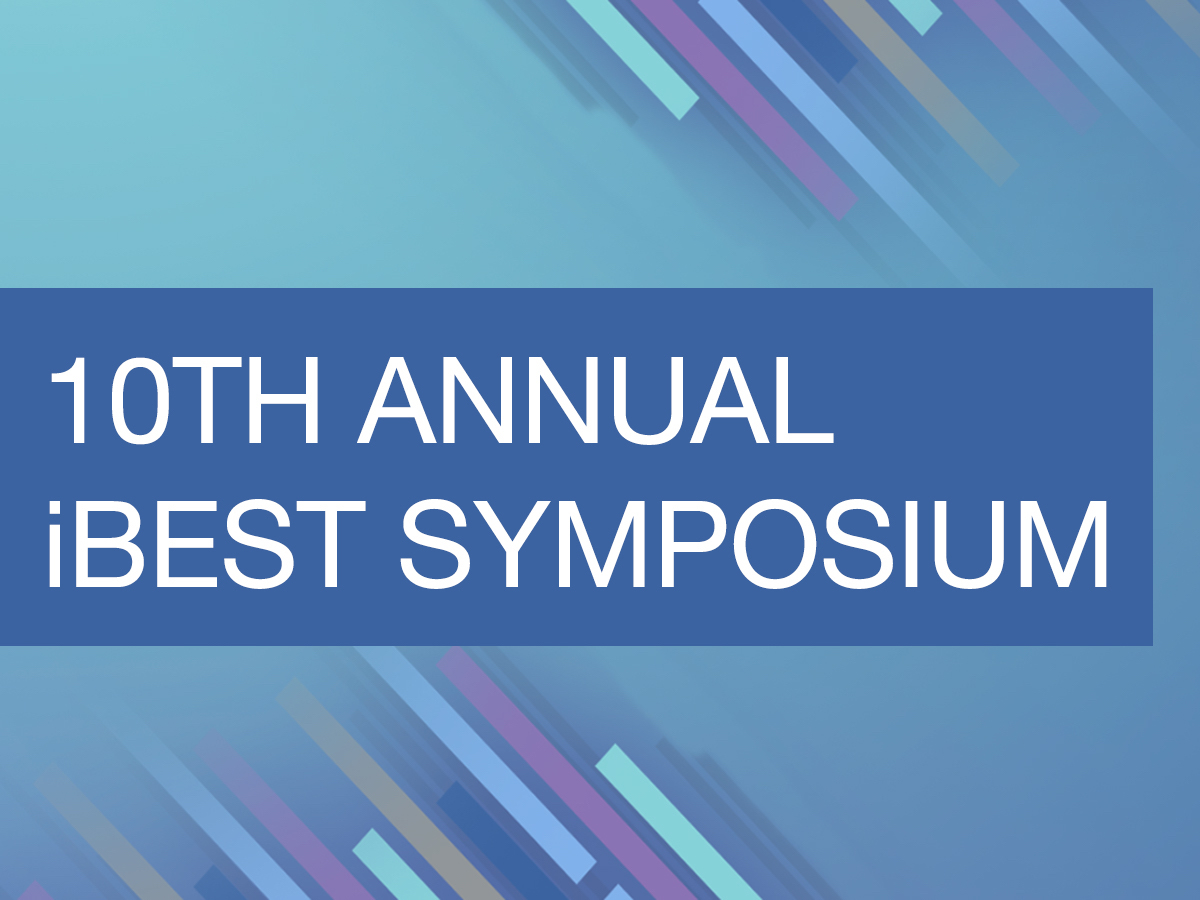2020 iBEST Symposium event recap

The 10th annual iBEST Symposium featured a keynote talk on astronaut health care by former astronaut Dr. Robert Thirsk and panels and presentations on a range of biomedical topics from industry panelists and iBEST researchers.
The Institute for Biomedical Engineering, Science and Technology (iBEST) held its 10th Annual Symposium on November 20, featuring a keynote address from a former astronaut, a panel with industry members and presentations from iBEST members from Ryerson University and St. Michael’s Hospital, Unity Health Toronto. iBEST is a collaborative partnership between the hospital and the university that brings clinicians, scientists and trainees together to advance health care technologies and approaches. This year’s event was hosted virtually.
“From the outset, we saw the benefits of this collaborative program,” said Dr. Ori Rotstein, Unity Health Toronto’s vice-president, research and innovation about the origins and development of iBEST during his welcoming remarks. “Coming together and sharing knowledge is what this institute is all about.”
Ryerson’s Dr. Steven N. Liss, vice-president of research and innovation, said it has been inspiring to see how many iBEST researchers have pivoted to direct their research focus on issues relating to COVID-19. “iBEST members continue to develop new ways of advancing clinical care and making discoveries that align with current needs in our communities here and afar. The importance of this orientation is more important than ever, as we grapple with the challenges of a global pandemic,” he said.
Former Canadian Space Agency astronaut Dr. Robert Thirsk, an engineer, physician and the recipient of an honourary doctorate of engineering from Ryerson, gave a keynote address on Healthcare and Performance of Deep Space Explorers, outlining for the audience some of the considerations and challenges scientists will need to address so that astronauts can provide their own health care independent of Earth during missions such as a voyage to Mars.
“Strap yourselves in, we’re going to deep space,” said Dr. Thirsk, who also outlined what he saw as potential benefits for Canadians taking a leadership role in deep space health in this country, such as more accessible remote health care and at-home patient monitoring.
The panel discussion was focused on challenges and rapid response to COVID-19, and featured Dr. Josef Penninger, the director of the Life Sciences Institute at the University of British Columbia, Dr. Chetan Tailor, founder and CEO of Tailored Genes, and Dr. Susan Wood, president and CEO of VIDA Diagnostics. Each gave a brief presentation on their research and companies. Dr. Penninger shared his research into the potential of a soluble recombinant version of angiotensin-converting enzyme 2 (ACE2) as a treatment for the virus. Dr. Tailor’s company produces viral vectors and has developed COVID-19 vectors for scientists to use in their research. VIDA Diagnostics is combining artificial intelligence tools and clinical knowledge for application in lung and respiratory care, including COVID-19, which primarily impacts the respiratory system. After the brief presentations, Dr. Art Slutsky from St. Michael’s Hospital lead a discussion that included topics related to scientists embarking on entrepreneurial ventures.
iBEST’s four research themes were represented by iBEST principal investigators and trainees who gave talks on a variety of topics, including vision loss in astronauts, traumatic brain injury phenotyping, lung repair after injury and a new image-guided cardiovascular intervention tool.
The presenters were:
Biomedical Delivery Systems (BDS) theme:
- Principal investigator speaker: Dr. Yeni Yucel – Tackling Vision Loss in Astronauts
- Trainee speaker: Dr. Ali Salari – Intracellular delivery facilitated by acoustofluidics
Biomaterials, Tissue Injury & Repair (BTR) theme:
- Principal investigator speaker: Dr. John Marshall – COVID-19: The Research Pandemic
- Trainee speaker: Dr. Alice Luo – Lung repair and regeneration after injury: Molecular mechanisms and therapeutic opportunities
Healthcare AI and Analytics (HAA) theme:
- Principal investigator speaker: Dr. Michael Cusimano – Data-driven phenotype discovery in traumatic brain injury (TBI) patients: Motivations and datasets
- Trainee speaker: Dr. Ashirbani Saha – Data-driven phenotype discovery in traumatic brain injury (TBI) patients: Methods and results
Biomedical Imaging & Therapy (BIT) theme:
- Principal investigator speaker: Dr. Ali Tavallaei – A Novel Approach for Image-Guided Cardiovascular Interventions
- Trainee speaker: Dr. Eno Hysi – Photoacoustic imaging for monitoring disease and treatment
The symposium wrapped up with its People’s Choice Awards, which was supported this year by Tailored Genes. Dr. Yeni Yucel was the recipient in the principal investigator category, and in the trainee category Dr. Eno Hysi was selected for the award and Dr. Alice Luo was received an honourable mention.
Related links:
Exploring health care for deep space missions (external link)